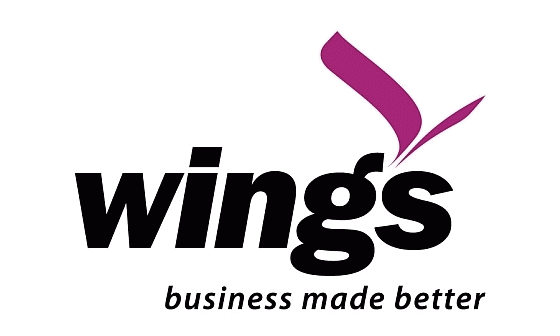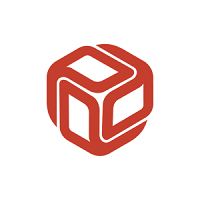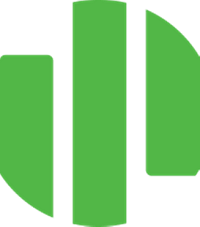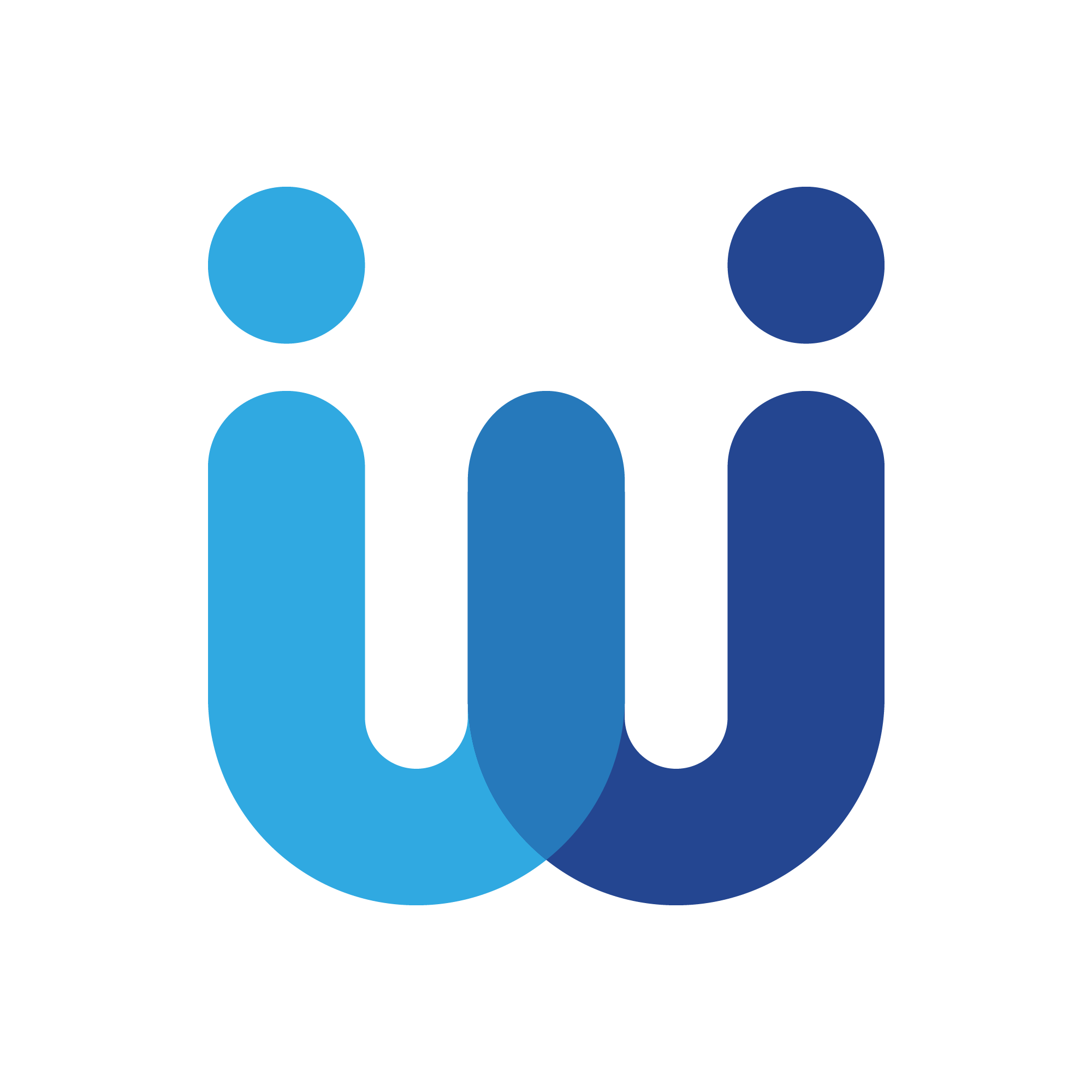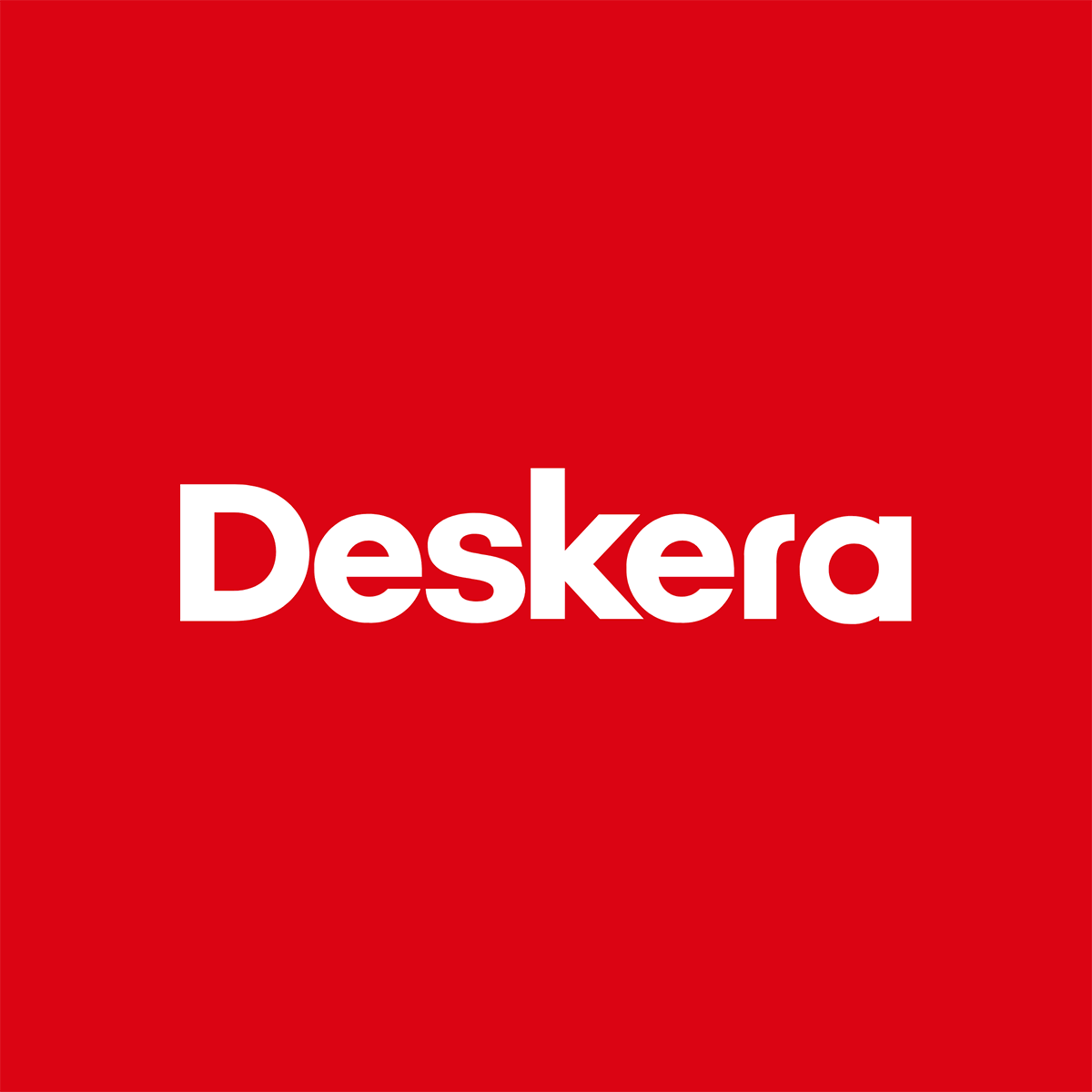Yes, most budgeting software nowadays supports multiple platforms and devices. This means you may use your budgeting software on a variety of devices, including your laptop, tablet, or smartphone, as well as across many platforms such as Windows, Mac, and mobile. This tool allows you to effortlessly manage your budget and make changes from wherever you are, making budgeting more convenient and efficient.
List of 20 Best Budgeting Software
QuikrExpense – solution designed to simplify travel and expense management for businesses. Gain comprehensive control and visibility over employee expenditures and seamlessly manage project costs. Our innovative app automates travel and expens...Read More QuikrExpense
Money in Excel streamlines financial management by seamlessly integrating your financial data into Excel. With personalized insights, automated updates, and customizable templates, this powerful tool simplifies budgeting, expense tracking, and invest...Read More Money in Excel
Quicken - the leading budgeting tool for efficient financial management. Access over 11,000 online billers and easily download PDF bills for convenient bill payments. Enjoy advanced features without the need for upgrades, along with enhanced customiz...Read More Quicken
Bluecoins is a financial tool that takes the hassle out of budgeting and expense tracking. With its intuitive interface and comprehensive features, managing your money has never been easier. Trusted by millions of happy users, Bluecoins simplifies yo...Read More Bluecoins
Wings Accounting Nxt is a software that streamlines your financial management and inventory control. Gain complete control over your business operations with just one comprehensive system. Say farewell to using multiple tools and embrace the efficien...Read More Wings Accounting
Finario is a enterprise solution for effective Capex management. With Finario, you can simplify and streamline your organizations entire capital investment process, from planning and budgeting to post-completion review. Say goodbye to manual processe...Read More Finario
PlanGuru is a budgeting tool designed for in-depth financial analysis. It features the ability to import up to 5 years of historical data and create forecasts for the next 10 years, making it tool for planning and decision-making. Its platform allows...Read More PlanGuru
Wask is the leading Digital Marketing Software designed for Enterprises, SMEs, and Startups. With a platform for Web App, Windows, and Android, Wask provides a seamless solution for all your digital marketing needs. Its robust features, including Sch...Read More Wask
Personal Capital is a financial tool that provides real-time monitoring and evaluation of your investments. It efficiently identifies any hidden fees and offers customized advice for managing your portfolio. With a diverse range of investment options...Read More Personal Capital
PocketSmith is is a financial solution youve been searching for. With intuitive features and accurate forecasting, effortlessly manage your finances by personalizing your budget, tracking expenses, and planning ahead. With a community of 280,000 user...Read More PocketSmith
Prophix is a budgeting software that streamlines financial management for businesses. Its user-friendly interface and robust capabilities enable easy budget creation, tracking, report generation, and paperless processes. Renowned companies such as Su...Read More Prophix Software
Zoho Invoice is invoicing software perfect for freelancers and small businesses. It is completely free and operates online, allowing you to effortlessly create professional invoices, send payment reminders, and receive payments online. Simplify your...Read More Zoho Invoice
CountAbout is a convenient budgeting software designed for Android and iOS devices. With the ability to import data from Quicken and Mint, it offers top-notch security with multi-factor login protection. This seamless tool automatically syncs with yo...Read More CountAbout
Ledgible is a accounting and auditing platform designed specifically for blockchain assets. Our solution acts as a conduit between traditional financial structures and emerging digital assets by offering a unified perspective to financial institution...Read More Ledgible
Anaplan is a platform for businesses to revolutionize their planning process. With its advanced scenario planning capabilities, easy data access, and seamless collaboration, Anaplan empowers organizations to make strategic decisions, increase profita...Read More Anaplan
Weproc is an innovative SaaS solution that streamlines and optimizes your companys procurement and supply management processes. With its automated features, it boosts productivity and saves valuable time and resources. Weprocs user-friendly interface...Read More Weproc
rBudget is a cloud-based software for accurate forecasting, underwriting, and asset management. Perfect for brokers, owners, appraisers, and lenders, rBudget offers seamless data import/export, clear formulas, and detailed Excel reports, making it th...Read More rBudget
Cube Planning - the premier strategic planning software that seamlessly integrates data from your tech stack into Excel and Google Sheets. No more tedious manual transfers or potential errors. With Cube, you can effortlessly analyze, plan, and collab...Read More Cube Planning
Deskera All-in-One is a and user-friendly cloud-based software designed to meet all your business needs. Move your operations to the cloud effortlessly and gain instant access to real-time insights via our intuitive dashboard. Simplify your business...Read More Deskera
Martus is a and user-friendly software designed to streamline data management for organizations. It offers advanced encryption features and intuitive tools to securely collect, organize, and analyze sensitive information. With Martus, you can enhance...Read More Martus
Learn More About Budgeting Software
- What Is Budgeting Software?
- What Are The Recent Trends In Budgeting Software?
- Benefits Of Using Budgeting Software
- Important Factors To Consider While Purchasing Budgeting Software?
- What Are The Key Features To Look For In Budgeting Software?
- Why Do Businesses Need Budgeting Software?
- How Much Time Is Required To Implement Budgeting Software?
- What Is The Level Of Customization Available In Budgeting Software?
- Which Industries Can Benefit The Most From Budgeting Software?
- Conclusion
What Is Budgeting Software?
Budgeting software is a digital application that helps individuals and organizations create and track budgets. It enables users to construct a thorough budget for their income and expenses, making it easier to remain on track with their financial goals and monitor their spending patterns. Budgeting software is fundamentally designed to automate the budgeting process by offering a thorough snapshot of a user's finances in one spot.
This includes arranging revenue and costs, categorizing transactions, creating budget categories, and establishing spending restrictions. It also provides significant insights into spending habits and trends, allowing users to make more informed financial decisions. One of the primary advantages of budgeting software is its potential to reduce time and effort over traditional pen and paper budgeting approaches.
It reduces the need for laborious computations, makes it easier to track spending and income, and gives real-time financial data to users. This makes it an appealing choice for people wishing to simplify their budgeting approach. Another benefit of budgeting software is its accessibility. Many budgeting software solutions are cloud-based, allowing users to manage their accounts from any location and on any device.
This makes it easy to stick to budgets and track spending while on the road, making it an excellent solution for busy individuals and company owners. When choosing budgeting software, check for critical features like customized budget categories, simple interaction with bank accounts and credit cards, and the ability to define and track financial objectives.
Some software also includes features like bill payment reminders, investment tracking, and credit score monitoring. In conclusion, budgeting software provides a complete and user-friendly solution for financial management. Its mechanization and accessibility make it a useful tool for both people and organizations. Budgeting software can help you achieve your financial goals and manage your money more successfully by streamlining the process and providing insights into your spending habits.
What Are The Recent Trends In Budgeting Software?
Recent technological improvements have created a fast rising market for budgeting software. Budgeting software has evolved from conventional spreadsheet-based applications to sophisticated cloud-based platforms, with numerous solutions available. As a result, new developments in the budgeting software market are influencing how individuals and organizations manage their budgets. In this buyer's guide, we'll look at some of the latest trends in budgeting software to help you make an informed purchase decision.
1. Automation: One of the major developments in budgeting software is the use of automation features. With the advancement of artificial intelligence and machine learning, budgeting software can now automatically categorize expenses, track spending habits, and even recommend budget adjustments depending on a user's financial objectives. This feature saves time while also improving budgeting accuracy and reducing human error.
2. Mobile Applications: As more individuals rely on smartphones for daily tasks, it's no wonder that budgeting software has gone mobile. Many budgeting tools now include mobile applications, allowing users to view their budget at their fingertips. These apps not only make it easy to manage budgets on the move, but they also give real-time updates and cross-device syncing.
3. Customization: Each person and business has distinct financial goals and requirements. Budgeting software has evolved to address these individual needs by providing configurable functionality. Users may now adjust their budgeting software to their specific budgeting style and preferences, making the process more efficient and personalized.
4. Improved Security: As more financial data is exchanged and stored online, budgeting software users have grown increasingly concerned about security. To solve this, budgeting software businesses are investing in advanced security methods like two-factor authentication, data encryption, and secure servers to safeguard sensitive financial data.
5. Collaboration: Collaboration is no longer restricted to typical office settings. With the rise of remote work and virtual teams, budgeting software now includes collaboration features that allow many users to access and work on budgets at the same time. This not only promotes teamwork, but also simplifies the budgeting process for organizations.
Benefits Of Using Budgeting Software
Budgeting software is a strong and efficient tool for helping individuals and organizations manage their money wisely. Its user-friendly layout and advanced functionality have made it a popular budgeting and financial management tool. Let's look at some of the primary advantages of using budgeting software.
1. Simplifies The Budgeting Process: Budgeting software eliminates the need for manual calculations and paper-based planning, making it more efficient and hassle-free. Users can develop, track, and manage budgets from a single platform, saving time and effort.
2. Offers Real-Time Insights: Budgeting software allows customers to gain a real-time perspective of their financial situation. It enables users to track their costs, manage their cash flow, and find prospective savings possibilities. This helps them make more informed financial decisions and keep on top of their finances.
3. Automates Cost Tracking: Budgeting software simplifies the process of documenting spending and keeping track of them. Users can simply enter the data of their transactions, and the software will categorize and organize them for later reference. This decreases the likelihood of errors and saves time on manual data entering.
4. Provides Budget Customization: Budgeting software enables users to tailor their budgets to their unique financial goals and requirements. They can set limitations for various spending categories, such as groceries, rent, and entertainment, and the software will notify them when they are about to reach their limit. This encourages improved spending habits and helps you stay inside your budget.
5. Promotes Teamwork: Many budgeting software includes collaboration features, which allow numerous users to access and collaborate on the same budget. This is useful for couples or business partners who need to manage their money collectively. It also promotes transparency and accountability among team members.
6. Generates Reports: Budgeting software produces detailed reports and analytics, providing customers with a complete picture of their money. These reports can be useful for assessing expenditure trends, identifying areas for improvement, and making data-driven financial decisions. They can also be utilized for tax preparation or to present to financial advisors.
Important Factors To Consider While Purchasing Budgeting Software?
Budgeting is a critical component of financial management. With the advancement of technology, budgeting software has become a popular tool for individuals and organizations to track and control their expenditure. However, with so many options on the market, it might be difficult to find the best budgeting software. Here are some crucial considerations when selecting budgeting software:
1) Personal Or Business Use: Before you begin shopping for budgeting software, consider whether you need it for personal or business use. Some software is tailored to businesses, providing functions such as invoicing, payroll, and tax administration. Personal budgeting software, on the other hand, is more concerned with individual costs and incomes.
2) Functions: The functions available in budgeting software might differ substantially. Some fundamental things to check for are budgeting, cost tracking, and income tracking. However, if you have unique requirements, such as multiple users, automatic bill payments, or extensive financial reports, you should investigate and evaluate the features provided by various software.
3) Usability: The major goal of budgeting software is to make it easier to manage your expenses. As a result, it is critical to select user-friendly software that is straightforward to navigate and has an intuitive interface. This saves you time and makes the budgeting process less intimidating.
4) Compatibility: Although most budgeting software is compatible with both desktop and mobile devices, it is still necessary to ensure that the software is compatible with your operating system and devices. This will ensure a seamless experience and convenient access to your budgetary information.
5) Data Security: Financial information is delicate, therefore it is critical that your data is secure. Look for budgeting software that provides secure data encryption as well as backup and recovery alternatives in the event of a technical breakdown.
6) Customer Help: As with any software, it is critical to have dependable and accessible customer help in the event of any problems or questions. Look for software that provides several help channels, such as email, phone, and live chat, and read evaluations of their customer care.
7) Price: Budgeting software can cost anywhere from nothing to hundreds of dollars. It is critical to assess your budget and select software that meets your requirements and budget. Remember that the most expensive software may not be the best option for you, and some free software may include all of the functionality you require.
What Are The Key Features To Look For In Budgeting Software?
When it comes to managing your money, having dependable and efficient budgeting software is essential. However, with so many options on the market, it might be difficult to find the best one for your needs.
To make an informed decision, here are the essential characteristics to look for in budgeting software:
1. Budget Development And Tracking: Budgeting software's principal role is to help you build and track your budget. Look for software that lets you create a budget based on your income, expenses, and financial objectives. It should also allow you to monitor your expenditure and compare it to your budget to determine where you stand.
2. Expense Categorization: To have a thorough understanding of your spending, categorize your expenses. A decent budgeting program should allow you to create unique categories according on your requirements, such as food, bills, entertainment, etc.
3. Automatic Transaction Tracking: Manually inputting each transaction into your budget is time-consuming and error-prone. Look for software that automatically tracks your bank and credit card activities and provides real-time expenditure data.
4. Budgeting Tools And Calculators: Advanced budgeting software frequently includes tools and calculators to help you plan and achieve your financial objectives. These could include debt repayment calculators, savings goal trackers, and retirement planning tools.
5. Bill Reminders And Alerts: Late fees and missing payments can wreck your finances. To avoid these additional costs, select software that provides reminders for forthcoming bills. Some software also provides alerts for overspending or approaching your budget limit.
6. Compatibility And Accessibility: Ensure that the budgeting software you choose is compatible with your devices, whether they be computers, tablets, or smartphones. It should also feature an online and offline version, so you can view and adjust your budget even when you aren't connected to the internet.
7. Security Features: When working with sensitive financial data, security is essential. Look for software that provides encryption and password security to keep your data safe from hackers and identity theft.
8. Customer Support: If you have any problems or inquiries concerning the program, dependable customer service is crucial. Look for software that offers numerous modes of help, such as email, phone, or live chat. By taking into account these crucial aspects, you may choose budgeting software that suits your budget and meets your financial management requirements. Remember to read reviews and compare prices to get the most value for your money. With the correct budgeting software, you can easily manage your funds and reach your financial goals.
Why Do Businesses Need Budgeting Software?
Budgeting is an essential component of financial management for any firm, no matter its size or industry. Keeping track of costs, income, and general financial health is critical for making sound decisions and staying on track with your goals. However, manual budgeting procedures can be time-consuming, prone to human error, and difficult to adequately assess.
This is where budgeting software comes in, a strong tool that streamlines and optimizes the budgeting process for organizations of all sizes. One of the key reasons why firms use budgeting software is to get greater control over their financials. This program allows firms to effortlessly track their income, expenses, and cash flow in real time.
This real-time view enables business owners and financial managers to make informed decisions quickly, rather than depending on out-of-date financial data. Furthermore, budgeting software enables firms to accurately forecast and plan for the future. Businesses can use historical data to produce precise financial forecasts and projections. This allows them to predict prospective financial issues and plan accordingly, whether by reducing costs or raising investments.
Another significant advantage of budgeting software is the automation of mundane operations. Manual budgeting operations, such as data entry and report creation, are time-consuming and prone to human mistake. Budgeting software automates these procedures, allowing organizations to focus on more important areas of their operations while also decreasing the likelihood of errors. Budgeting software also enables collaboration and communication inside a firm.
With numerous users seeing the same data and reports, teams may more easily discuss and make decisions on budget planning and financial goals. This level of participation may result in a more accurate and effective budgeting process. Furthermore, budgeting software generates configurable and dynamic reports, which are essential for tracking financial health.
These reports provide businesses with a thorough perspective of their expenses, revenue, and profitability, enabling them to make data-driven decisions. In addition to these advantages, budgeting software can be integrated with other company systems, such as accounting software, to ensure a continuous flow of financial data. This interface eliminates the need for human data entry and guarantees that financial reports are accurate.
How Much Time Is Required To Implement Budgeting Software?
The time necessary to adopt budgeting software varies depending on a number of factors, including the intricacy of your finances and the size of your firm. On average, properly implementing and integrating budgeting software into your business processes might take anything from a few weeks to a few months. The initial phase in the implementation process is often data collecting and analysis.
This entails collecting all of your financial information, such as income and expenses, and putting it into the software. This can take anything from a few days to a few weeks, depending on the volume of data and how it is organized. Next, you will need to tailor the budgeting program to your individual requirements. This may entail establishing several budget categories, developing custom reports, and specifying user rights.
This stage can take anything from a few days to a few weeks, depending on how intricate your budgeting requirements are. After the software has been tailored to your specifications, the following stage is user training. It is critical to instruct users on how to browse and use budgeting software efficiently. This could be a half-day training session or numerous training sessions spaced out over several weeks.
Finally, the installation phase includes testing and troubleshooting any potential concerns. This is a necessary step to check that the budgeting software is properly functioning and appropriately recording your finances. Testing might take anything from a few days to several weeks, depending on the size of your firm and the complexity of your budgeting procedures.
What Is The Level Of Customization Available In Budgeting Software?
Budgeting software provides varying levels of flexibility to meet the demands of people and enterprises. These customization options enable users to personalize the software to their own budgeting objectives and money management styles. At its most basic, budgeting software allows users to enter their income and costs and establish spending limitations for several categories. Users can also set and track savings goals.
This level of customisation is ideal for folks who like a straightforward budgeting strategy. However, for individuals that prefer more extensive functionality, there are budgeting software solutions with a greater degree of customisation. These could include the ability to construct numerous budgets for various time periods, such as weekly, monthly, or annual.
Users can also further personalize and manage their budget categories, such as creating sub-categories and assigning specific targets or spending limitations. Furthermore, some budgeting software supports connectivity with external accounts, such as bank accounts and credit cards, to automatically track and categorize transactions. This level of personalization saves consumers time and effort when manually entering their financial information.
Furthermore, some budgeting software provides choices for customizing financial reports and infographics. Users can choose the data to include in these reports and change the presentation to suit their needs. This tool is useful for people who want a more visual picture of their finances. Finally, the level of flexibility accessible in budgeting software will be determined by the specific software chosen.
Before purchasing software, consumers should examine their budgeting objectives and goals, as well as thoroughly review the customization choices available. Users may efficiently manage their finances and achieve their financial objectives by choosing software that allows for the appropriate level of customisation.
Which Industries Can Benefit The Most From Budgeting Software?
Budgeting software is a strong tool that may help a variety of companies, large and small. Budgeting software, with its capacity to streamline financial management and improve overall business operations, has become a must-have for firms hoping to prosper in today's competitive marketplace.
1. Small Firms: Small businesses frequently operate on small budgets and have few tools to handle their accounts. Budgeting software can help companies track spending, evaluate cash flow, and generate accurate financial predictions, allowing them to make more informed business decisions.
2. Non-Profit organizations: Budgeting is critical for non-profit organizations because they rely largely on donations and grants. Budgeting software allows them to precisely allocate cash, monitor spending, and track donations, providing financial openness and responsibility.
3. Retail And E-commerce: In the fast-paced world of retail and e-commerce, budgets must be closely monitored in order to be viable. Budgeting software may help firms track sales, manage inventory, and prepare for future spending, providing them a competitive advantage in an ever-changing market.
4. Construction: The construction business operates on tight budgets and deadlines. Construction businesses can use budgeting software to manage project costs, track expenses, and provide thorough reports, allowing them to stay on budget and achieve project deadlines.
5. Healthcare: Hospitals, clinics, and other healthcare businesses have intricate financial structures that necessitate meticulous budget administration. Budgeting software allows them to track spending, handle patient billing, and provide accurate financial reports, assuring efficient and sustainable operations.
6. Education: Educational institutions, whether public or private, may have several departments and financing sources, necessitating careful budget allocation. Budgeting software can assist schools and colleges simplify their finances, track spending, and allocate resources to various initiatives, resulting in more effective operations.
7. Government: Agencies are responsible for effectively managing public funds. Budgeting software can help them track and manage spending, analyze financial performance, and provide timely reports to ensure transparency and responsibility.
Conclusion
To summarize, budgeting software is a useful tool for people, corporations, and organizations wanting to better manage their finances. Its varied features and capabilities can help customers streamline the budgeting process and make more educated financial decisions. Before making a purchase, you should assess your individual budgetary requirements and compare the various software solutions accessible.
Some important considerations are budgeting approach, interoperability with other financial tools, cost, and customer support. Depending on your requirements, you can select basic budgeting software for personal use, more advanced alternatives for small enterprises, or robust solutions for larger corporations. Additionally, it is critical to take advantage of free trials, demos, and user evaluations to gain personal experience with the software and establish its ease of use, customization possibilities, and general functionality.
Remember that budgeting software is an investment that can significantly improve your financial management and decision-making. So, take the time to research and evaluate options to find the greatest match for your budget and objectives. We hope this buyer's guide has given you enough knowledge to make an informed selection and successfully manage your finances.
Budgeting Software FAQ's
Can Budgeting Software Be Accessed Across Multiple Devices And Platforms?
Is Budgeting Software Future-Proof And Adaptable To Emerging Technologies Like Ai, Blockchain or Iot?
Budgeting software is continually growing and adapting to stay up with emerging technologies such as artificial intelligence, blockchain, and the Internet of Things. Budgeting software, which can automate, personalize, and analyze financial data, is future-proof in today's fast-paced digital environment. It is a versatile and scalable solution that can combine with new technologies and deliver precise insights for better financial planning. Budgeting software will continue to evolve as firms innovate and adopt new technology, making it an indispensable tool for effective budget management.
Is There A Free Trial Offered To Assess Budgeting Software Before Committing?
Yes, many budgeting software businesses provide a free trial period in which users can test out the software's features and functionality. This helps people or organizations to determine whether the program is appropriate for their needs before making a purchase. It is recommended that you take advantage of this trial offer to check that the budgeting software suits your needs and allows you to efficiently manage your funds.
Does Budgeting Software Offer Data Security Features And Meet Regulatory Compliance Standards?
Yes, most budgeting software solutions have data security safeguards and are designed to comply with regulatory requirements like as GDPR and HIPAA. These features usually include data encryption, secure login methods, and regular backups. Furthermore, many budgeting software vendors perform third-party security assessments to guarantee that their systems are secure and compliant. Before selecting a budgeting software for your corporation, you should always investigate and evaluate its security measures and compliance certifications.
Can Budgeting Software Integrate Seamlessly With Existing Tools And Platforms?
Yes, most budgeting software integrates effortlessly with existing tools and platforms. This encompasses banking apps, credit card accounts, and online payment platforms. This interface allows customers to effortlessly sync their financial data and transactions in real time, improving the accuracy and efficiency of budgeting and spending tracking. Some budgeting software also integrates with accounting software, providing a more comprehensive financial management experience. Before deciding on budgeting software, make sure it is compatible with your present tools.





